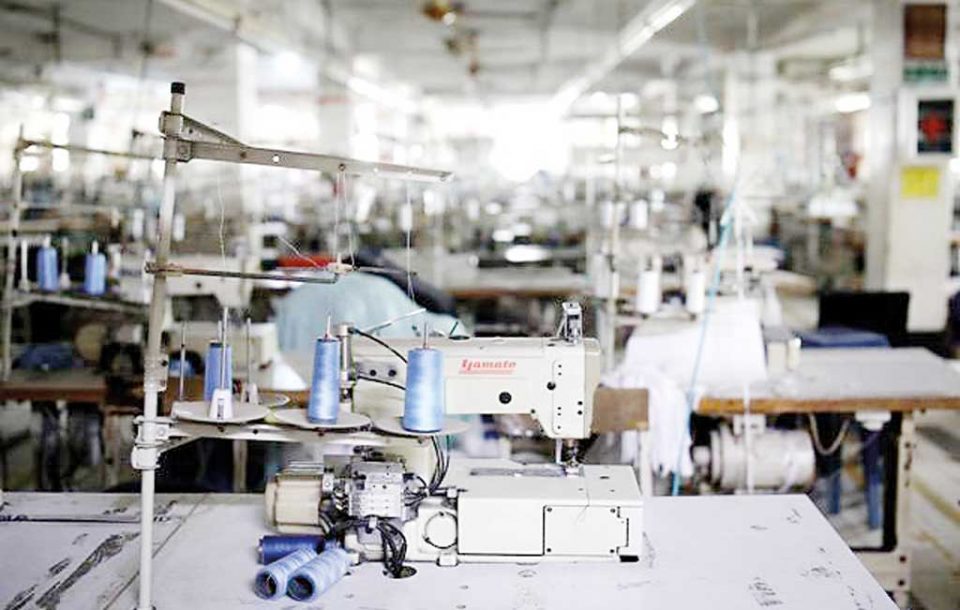Challenges and consequences if such a decision were made
The position of the garment industry is changing rapidly as the damages caused by Covid-19 mount. It is difficult to perceive what is going to happen, both within Bangladesh and in the world at large.
But action is needed for the garment industry. It is impossible to exaggerate the importance of the successful implementation of opening the industry and the government’s Tk5,000 crore program. Failure to do so would set the economy back a decade and slow future economic growth.
There are two problems facing owners and the government.
Should the industry re-open in early May or is this too risky? Prime Minister Sheikh Hasina is reportedly determined to achieve this. In this article, the consequences of this decision are examined.
How to implement the government’s Tk5,000 crore program to pay the salaries of the workers? This knotty problem is covered in a second article.
Re-opening the industry
In March, the buyers began to cancel or delay shipments of garments that had been ordered. Some of these orders had been completed and were almost ready for shipment, and other orders were being sewn. Still others were ready for cutting the fabric or the fabric was in the port ready to be moved to the factories for cutting and sewing.
The government, BGMEA, and BKMEA placed great pressure on the buyers to live up to their contracts. Considerable success was achieved in persuading the buyers to follow the contracts. With the factories closed for most of April, it has now become difficult to fulfill all of these contracts.
There has been a lack of decisiveness by both the government and the trade organizations, uncertain what to do and all seemingly unwilling to accept responsibility.
The government’s gazetted instruction allowed factories to open but placed 100% responsibility on the factory owners if there were any cases among workers. This was a typical bureaucratic decision, a “yes” that in the real world resulted in “no.”

Neither the two trade organizations (BGMEA and BKMEA) nor the government were willing to work out a real policy. Now we must hope that a meaningful policy will be established, enabling the May opening, with contained risks to workers.
The key action is for the government and the trade organizations to define the conditions under which factories will be permitted to reopen. This requires the development of detailed protocols, setting out specific steps and actions for factories to follow.
Such protocols should be announced and gazetted as government policy. There should be no doubt that this is what factories must legally do if they are to remain open. Explicit provisions should be made for review and adjustments based on experience. The DIFE (Department of Inspection of Factories and Establishments) should establish jointly with the trade associations an inspection system and an informal tribunal that will make decisions to correct deficiencies.
Administrative action would require corrective action, and in cases where there were serious violations, recommendations of closure of the factory. But the purpose here is not to punish but to make the opening work while protecting the workers. There is no room here for corruption, DIFE inspectors must enforce the rules.
The challenge
Exports from the RMG sector are falling and a reduced level is certain for the rest of calendar year 2020. Below are my revised forecasts through December 2020 with and without the May opening.
With the May opening, the 2020 exports are estimated at $17.5 billion compared to $33.1 billion in 2019. Without the May opening, 2020 exports are estimated at $13.7 billion. The May opening will increase exports by about $3.8 billion during 2020 according to my estimates.
In making the estimates, I have focused on the demands likely to come from Europe and the US. There is a 50% decline in clothing purchases in the US and stores are burdened with a large amount of clothing that show no chance of selling.
European orders with the openings taking place will be cautious and increase only with a clearer picture of how rapidly economic recovery will take place. Demands will slowly increase but will not come anywhere near past levels in 2020. One can expect improvements in 2021 and 2022.
If the industrialized countries improve per the IMF forecasts, we can expect clothing demand to return to levels of late 2019 in late 2022. However, the IMF forecasts are very optimistic, assuming that the virus will not come back with a second wave; there are few epidemiologists who have confidence in that future.
But the real benefit for the industry of a May opening is that buyers will know Bangladesh is still in business and able to continue as a major competitive source for world class garments. Without the opening, buyers may doubt the ability of Bangladesh to come back to the market in 2020.
The safety of the workers is the paramount concern. If things go badly and there are large numbers of workers infected, then the factories must be closed. Companies and the government must face that possibility and deal with the reality of opening — taking the nation and the world into its confidence.
The protocols that BGMEA is working on seem to me comprehensive, based on both local experience and the protocols in other Asian countries which are currently operating or about to open. Betters Works (a program of the ILO) will be brought into this process, contributing to confidence that a sound balance will be achieved.
The conclusion I draw is that the May opening must go ahead as the government and the trade associations want. But there must be strong protocols established for companies that want to open, and these must be strictly followed. If worker infections are high, then the factories must be closed. It is a challenge for the workers, the garment companies, and the DIFE.
Forrest Cookson is an American Economist.


